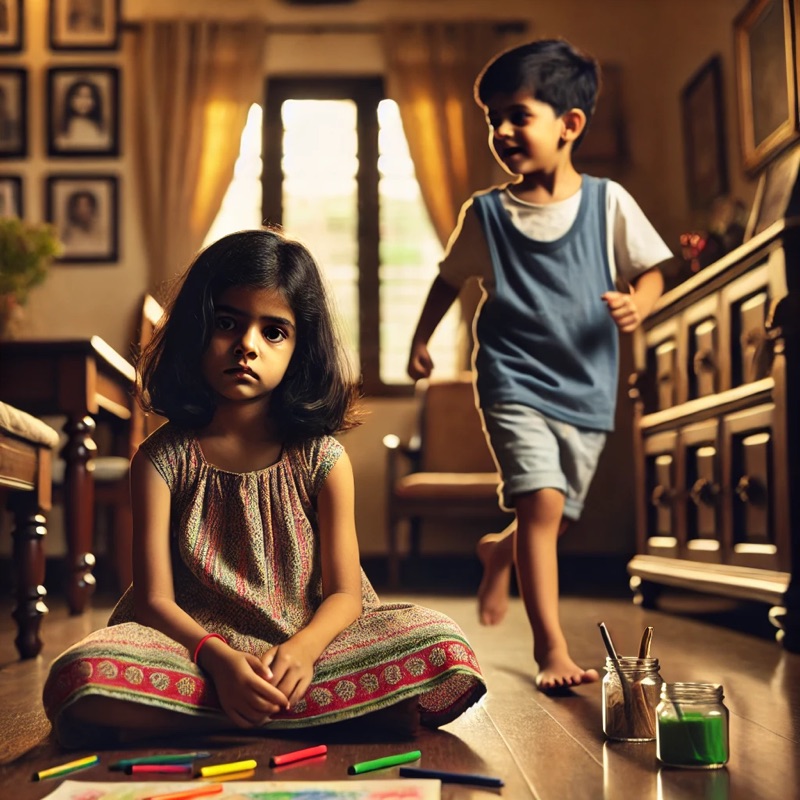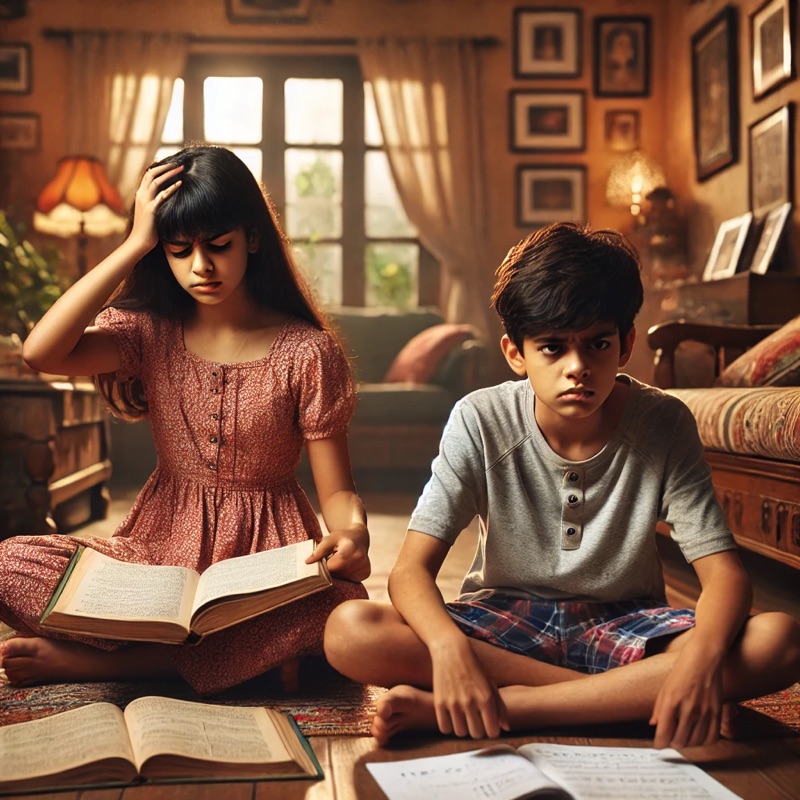Life Undiagnosed: When Gender Bias Hides Neurodiversity
Disclaimer: Article written based on research & lived experiences as a late diagnosed AuDHD woman.
Judged by the cover & left to struggle in silence.

The way autism is understood and diagnosed has always been flawed, but one of the biggest issues is the oversimplification of its spectrum. While earlier versions of diagnostic criteria's were only male centric, the revised DSM-5 merged different diagnoses—like Asperger’s, classic autism, and PDD-NOS—into one term, “Autism Spectrum Disorder” (ASD), erasing crucial distinctions. While the change may have made diagnosis easier for professionals, it created a system that often fails to recognize the vastly different needs of autistic individuals.
People making these decisions rarely consider how they impact those of us who actually live with these neurological differences. Clubbing varying support needs under one umbrella has led to many people—especially low to moderate support requiring individuals—slipping through the cracks. I was one of them.
Growing Up Undiagnosed in a Biased System
I grew up in an environment where gender norms dictated everything, including how a child’s development was assessed. In my culture, boys were expected to be rowdy, curious, and active, while girls were expected to be obedient, polite, and quiet. Boys could get away with being “difficult” because it was excused as “just boys being boys.” If a boy struggled with focus or emotional regulation, adults assumed he would eventually mature out of it. But girls? We were conditioned early to suppress our emotions, adjust, and behave in ways that wouldn’t challenge authority.
I was naturally curious, always asking “why” about things that didn’t make sense to me. But instead of being seen as intelligent or inquisitive, I was labeled defiant. I had a deep interest in outdoor play, which was likely a result of my ADHD. I needed movement, exploration, and physical activity to regulate myself. But because I was a girl, I wasn’t allowed to engage in “wild” activities. Instead, I was forced into structured, quiet behaviors that didn’t come naturally to me. This led to a different kind of escape—one that existed in my mind. I withdrew into imaginary play and daydreaming, creating entire worlds in my head where I could be free.

School was another battle. I struggled with dyslexia, dyscalculia, and dyspraxia, but no one recognized it. Teachers assumed I wasn’t paying attention or wasn’t trying hard enough. No doctor suggested I might be autistic because I didn’t “look autistic” enough for them to even consider it. Instead, my difficulties were dismissed or attributed to laziness, stubbornness.
The Medical System’s Failure

One of the most traumatic experiences of my childhood was losing my ability to walk between the ages of 4 and 5. My body simply stopped responding the way it should, and I was subjected to multiple medical tests, medications, and daily injections. Yet, despite all this, no one considered that it could be skill regression—something that can occur at any age for autistic individuals. Instead, I was treated like a medical mystery.
I remember realizing, even as a child, that if I didn’t fight for myself, no one would. I was tired of being injected with unknown substances three times a day. I was tired of the confusion and the lack of answers. So, I taught myself to walk again. Not because I had proper medical support, but because I knew, deep down, that I had no other choice. My survival instinct kicked in at an age when I shouldn’t have even needed one. To this day, I still have a folder full of medical reports with no real diagnosis. No one ever figured out what had happened to me. But looking back, I now know—I was an undiagnosed autistic child experiencing a condition that should have been recognized.
The Cost of Masking and Misunderstanding

Because girls are expected to behave a certain way, many of us learn to mask our struggles from an early age. We push ourselves to fit in, to meet societal expectations, and to suppress behaviors that might make us stand out. But masking doesn’t make the struggles disappear. It just buries them deeper. And over time, the weight of that suppression takes its toll.
Many autistic girls, especially those undiagnosed, develop anxiety, depression, and even PTSD. Some, like me, also develop a deep distrust of the medical and educational systems that failed us. We were gaslit into believing our struggles weren’t real, and by the time we realize the truth, we are often left to piece everything together on our own.
Boys, too, suffer under these biases—just in different ways. The assumption that boys “just mature later” has led to countless undiagnosed cases of ADHD and autism. Many of these boys grow up struggling with emotional regulation, executive dysfunction, and self-esteem issues, all because they never received the support they needed. Some are even misdiagnosed with behavioral disorders, leading them down paths of punishment rather than understanding.
Breaking the Cycle

Both boys and girls grow up & often times choose to become parents. If we don’t break the cycle of misunderstanding and misdiagnosis, future generations will continue to suffer. A neurodivergent child raised by a parent who was never taught to understand their own brain is at risk of facing the same struggles, or 2x worse.
It’s time we stop using outdated gender expectations to determine who gets help and who is ignored. Let’s stop judging by the cover – “doesn’t look autistic enough” – . It’s time medical professionals, educators, and society as a whole recognise that neurodiversity doesn’t look the same for everyone. And most importantly, it’s time we listen to those of us who have lived through it.
I share my story not for pity, but to challenge the narrative that has hurt so many. If more people understood what being undiagnosed truly means, maybe the next generation wouldn’t have to suffer in silence the way I did.
So, I ask you—have you ever felt unheard, unseen, or forced to fit into an expectation that wasn’t meant for you? If you had been understood sooner, how different would your life have been?
Comments
Post a Comment